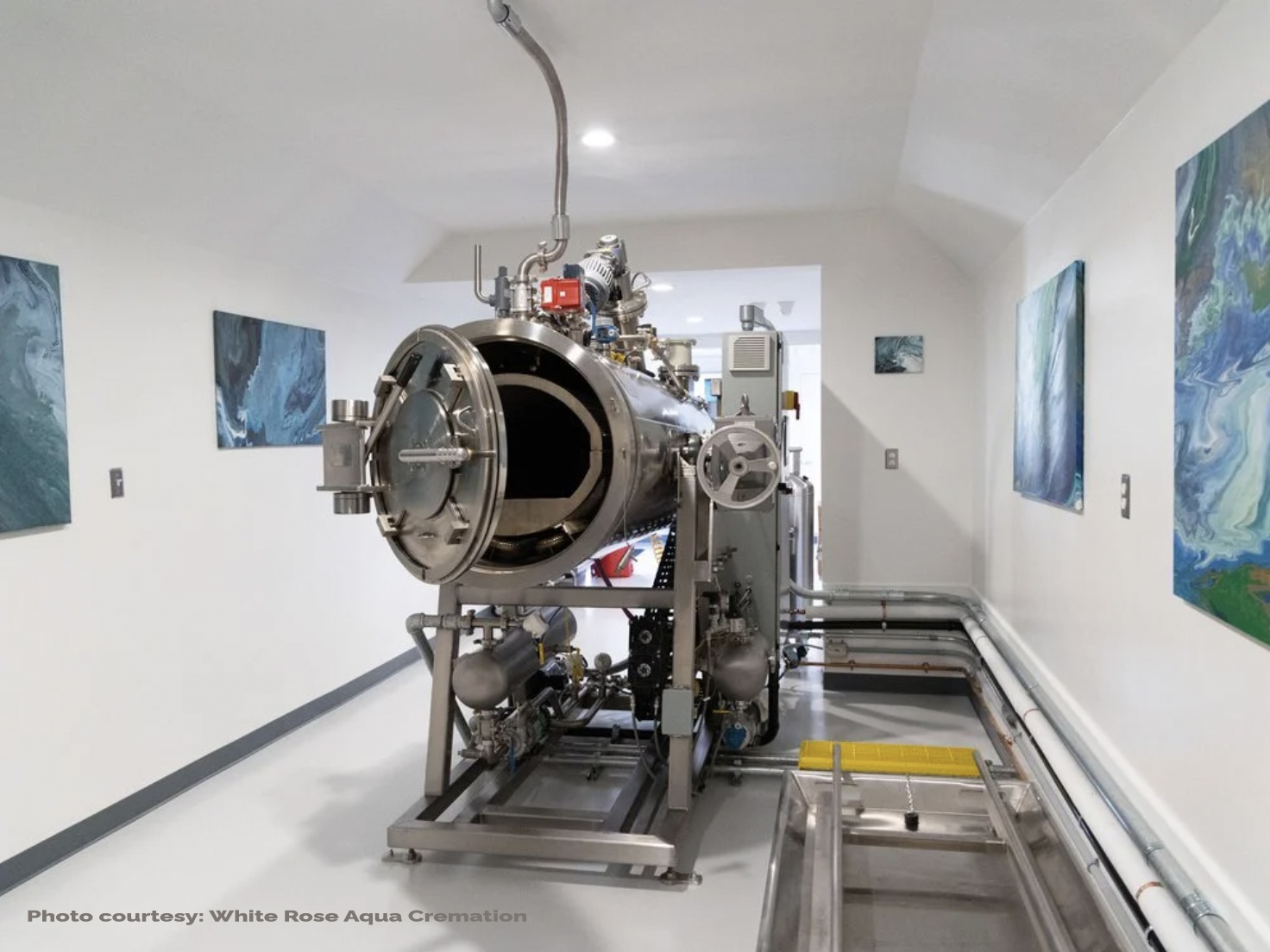With growing and inescapable evidence of climate change, more people are serious about finding ways to shrink their environmental footprint and help to protect the planet and its atmosphere. Humans can make changes in their daily lives to consume less fuel, reuse and recycle, and waste less food – and when making end-of-life plans, choose options that are less harmful to the natural environment.
According to a recent Smithsonian Magazine Innovation report, water cremation is slowly becoming more well known as an eco-friendly option for the final disposition of a body following death. Alkaline hydrolysis, sometimes referred to as aquamation, reduces the body in a heated water and sodium hydroxide solution over a course of 14 to 16 hours. The dissolved and sterilized body tissue is drained at an alkaline hydrolysis facility and the remaining bones are dried and ground into a fine powder to be returned to the family of the deceased. The effluent has been found to be safe to introduce into municipal sewer systems, and could even be beneficial in helping to break down sewage by providing nourishment for bacteria. The process also is effective at breaking down pollutants such as chemotherapy drugs or embalming chemicals.
The process gained more widespread attention with the recent passing of Archbishop Desmond Tutu who requested water cremation for the disposition of his body upon his death. Tutu, a Nobel laureate, and anti-apartheid leader described climate change as “one of the greatest moral challenges of our time”. Aquamation is currently permitted in 26 U.S. states and is legal in four Canadian provinces and one territory as a human funerary process. It is legal in all states, provinces, and territories in Canada and the U.S. for pets.
Alkaline hydrolysis consumes about 10 percent of the energy required to cremate a body with a flame and emits no greenhouse gases. The process also eliminates the need to bury a body using vast amounts of wood, copper, bronze, or steel for caskets or reinforced concrete in burial plots. Although it may take time for people to accept alkaline hydrolysis as a mainstream funeral practice, the process is expected to gradually gain a wider understanding as more people explore green burials in their end-of-life planning. The process has the potential to also be significantly less expensive than traditional services and burials that cost on average between $8,000 and $10,000, according to a recent Parting blog post.
Learn more about Alkaline Hydrolysis by following this link to the Cremation Association of North America website.






Add Your Voice
0 Comments
Join the Discussion